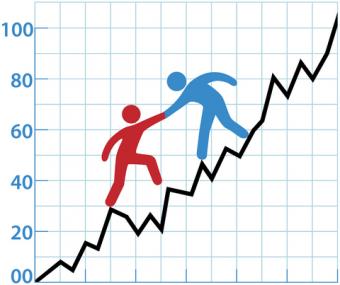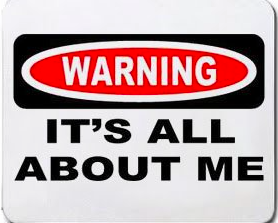In praise of mentors: Miss Blanchard, Mr. P, and the many caring adults who change our lives
I bid farewell to my dad on a brisk November morning in 1979. After our hugs, I climbed onto my new yellow moped, sped down our steep driveway, and headed toward school. It seemed odd to be arriving at school so early on a Saturday morning, but I was joined by other seniors who were also taking the standardized achievement test (SAT). I had only one shot at this test and, with no preparation and more than a few things on my mind, my resulting scores were undistinguished. By the time I returned home, my dad was gone. He left behind a 30 year old marriage, four kids, and a complicated legal and financial history. I never really understood exactly why he left, but I felt a sense of deep sense of loss and shame. I also don’t remember much about the days and weeks that followed, except that I was I was tanking academically and didn’t have a clue about how to apply to college. For some reason, as a middle school student, I had taken pride in memorizing the names and characteristics of every college and university listed in my older brothers’ oversized Barron’s Profiles of American Colleges. But now I was at a complete loss. One day, I was called out of class by my beloved guidance counselor, Miss Blanchard. She was a short, sturdy woman with a thick helmet of straight, white hair and the warmest smile imaginable. “Jeannie,” she said, as I entered her office “I heard you bought yourself a moped. I’ve always wanted to ride one. Would you mind if I took it for a spin?”
When I think about that and the countless ways that Miss Blanchard looked out for me that year, I am deeply moved. She must have sensed potential and, more importantly, how much I needed her. She generously helped me narrow in on a list of colleges and somehow shepherded me through the application process. I’m not sure, but I even think she pulled some strings to get me into college. After all, how is it that she called me to her office and triumphantly announced my acceptance, long before I received any official word from the University of Vermont? And, had I not attended that university, I would never have met the mentor, Professor George Albee, who changed my life. George seemed to hold the impression of me that, at my best, I hoped to convey. Over time, my sense of self shifted from a Jersey girl with modest ambition to someone who could and should try to make a difference in the world through clinical-community psychology. As an entering freshman, I had been surprised to learn that there existed non-medical “doctors.” I had never heard of a Ph.D., much less met anyone who held such a degree. But, within a few short years, I felt driven to obtain one.
Although not everyone is fortunate enough to find them, we all deserve such champions and mentors–people who, at just the right time, seem to understand us and what we need. And those of us who benefit need to pay it forward to the next generation. As the actor Kevin Spacey advised, “If you’re lucky enough to do well, it’s your responsibility to send the elevator back down.” Jo Emily Handelsman, the Associate Director for Science at the White House Office of Science and Technology Policy, articulated this influence at a gathering of STEM mentors last summer.
“When I was in 10th grade, my biology teacher, Mr. Postiglione, gave me a newspaper clipping about breeding corn to increase its nutritional value as a staple food. Mr. P. knew that I wanted to study plants and instinctively recognized that I would be interested in the global application of plant genetics described in the article. Little did he know that I was so inspired by the article (which, by the way, was posted over my desk for more than a decade) that it initiated my lifelong passion for agriculture and determined my professional trajectory. Mr. P. was a mentor of the best kind – he thought about my interests, never imposing his own hopes on me. And at a time when others discouraged girls from pursuing science, Mr. P. showed his faith in me by thoughtfully, over his morning coffee and newspaper, finding just the right spark to ignite my imagination and impel me toward many goals throughout my scientific career, even today.”
As Handelsman notes, good mentors find “just the right spark” and shepherd young people onto meaningful life paths. This column goes out to Miss Blanchard, George, Mr. P., and the countless others who do just that.











